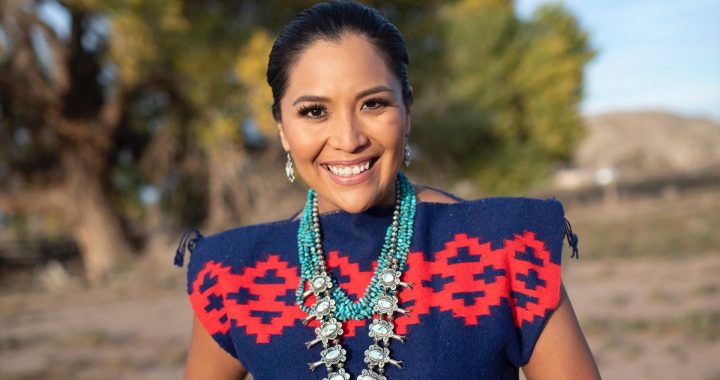Brandi Morin
APTN National News
The Sturgeon Lake First Nation in central Alberta was put on the boil water advisory list the day the Trudeau government was elected into power. But for the community of 1,483 it was just another familiar go round. And almost a year later they’re still waiting for funding to help the 249 homes needing clean water there.
“Well obviously nobody’s acted on it in the government regardless of who’s in power. It’s just the process that they use and life goes on I guess,” said Chief Richard Kappo.
He doesn’t believe the change in government will make a difference…this is a problem that has been going on way too long.
“They’ve (Trudeau government) promised all this funding and they’re still developing a process of how they should dole out that money. Some of the stuff has been going on for years. The boil water advisories are given to us from Health Canada and then of course, it goes down the chain, but in the end it’s the band that ends up paying unless it’s provided money,” said Kappo.
He estimates it will cost $100,000 to get the water back up to par. Just this week he signed and submitted a proposal to Indigenous and Northern Affairs Canada (INAC) asking for help. But he’s not waiting for an answer. The band has taken matters into their own hands and have started treating the water using their own funds, which they simply don’t have.
“We’ve started the work, started it about 4 days ago. We have to. We don’t have the resources but we’re doing it. We have to rob Peter to pay Paul to do it. It’s a health and safety issue,” said Kappo who thinks that water should be the number one priority for all levels of government.
Meanwhile, the Dene Tha First Nation in northern Alberta have also struggled on and off for years to maintain clean water systems.
Chief Joe Pastion estimated it will easly cost $30 million to fix the water problems when all is said and done incorporating all of the infrastructure, engineering, plumbing and other projects required to install new water and sewer lines.
The Dene Tha have been in ongoing negotiations with the government to secure the funding “for years,” he said.
He applauds Trudeau’s promise to fix the water problems in First Nations in five years, but he’s skeptical the rookie Prime Minister will be able to stay within budget.
“Once they (Federal Government) start funneling those numbers to each region, I’m sure every tribal and sub-office will take a cut of that funding and then whatever comes to the community will probably be less than what’s needed in the community,” he said.
Pastion has also put in a proposal to INAC this week and is waiting for a response.
During the 2015 federal election, the Liberals promised to eliminate all boil-water advisories in First Nation communities within five years.
In the budget, the Liberals plan to spend $1.8 billion on water and waste-water projects across the country.
According a 2011 study commissioned by the federal Aboriginal Affairs department, it would cost about $4.7 billion over 10 years to get First Nation water and wastewater infrastructure up to the department’s own standards. The report said First Nation communities needed an immediate $1.2 billion to deal with high-risk systems.
First Nations water needs $5billion fix: gov’t study
Linda Semansha oversees the water monitoring in the Dene Tha community of approximately 2,700 under which she said 70 homes are under water advisories. She said it’s common to see people with rashes due to contact with the water while costs to buy bottled water are high unless a person can drive to town or catch a ride where the cost is cheaper.
“It doesn’t make me feel very good especially because I’m the one who looks after the health program,” she said.
But contrary to Pastion, she has hope in the new government.
“I believe so (he might help us) because he’s talked about the water problems in the other communities.”
In British Columbia, Williams Lake First Nation Chief Anne Louis is celebrating the success of a multimillion water treatment facility built last year.
After being on a boil water advisory for about 15 years, they finally received the funding to upgrade.
“It’s been exciting for our community, it’s been a long time coming because we struggled for a very long time,” she said.
The benefits are spilling over into helping to create economic opportunities, she added. The band is working on a significant economic development project that can now have serviced water and a nearby community has approached them to service water there.
Even though Williams Lake received their funding before Trudeau was voted in, Louis has faith that other First Nations will soon start to benefit from his commitment.
“I believe it (his promises) will. I’ve heard of some people who are already starting to get their systems in place. But it’s a big massive project across Canada and I think people that have severe water issues should be the ones that are targeted first,” she ended.
At any given time across Canada, there are over 100 drinking water advisories in First Nations.
As of May 31, 2016, there are 137 advisories according to Health Canada First Nations Health Authority in British Columbia.
Drinking Water Advisories in First Nation Communities
APTN asked Indigenous Affairs about its schedule to fix water systems in communities but as of this posting, the department has not responded.
According to Human Rights Watch, Canada has been working for almost 40 years (1977) to solve the water crisis, but the problem persists. It said the government’s own auditing shows a pattern of over promising and they’ve failed.
@songstress28









